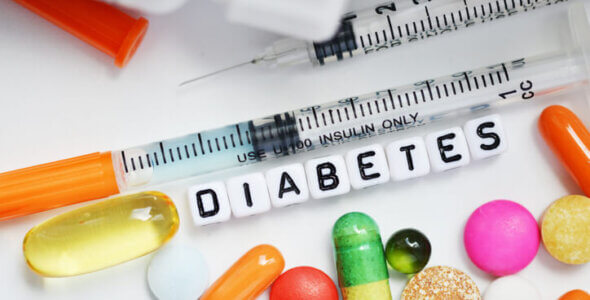Can diabetics donate blood?
Table of contents
- Is it safe for diabetics to donate blood?
- Does it matter if I have type 1 diabetes or type 2 diabetes?
- Factors that may prevent me from donating blood
- The blood donation process
- How to prepare for donating blood?
- Monitoring blood glucose levels post-donation
- Blood donations for diabetics FAQs
- Giving blood with diabetes
Donating blood is an act of kindness and a selfless way to help others in need. Blood donations allow blood transfusions to be given to people during surgery. Blood is also essential to treat a range of conditions. Sometimes a blood transfusion saves a life. In fact, 1 pint of blood donated can help up to 3 people, so a single donation could even save multiple lives.
However, blood is in short supply in the US. Blood cannot be made artificially, so all blood used in the healthcare system has to be donated. Someone in the US needs blood approximately every 2 seconds, but supplies are low in many areas of the country. The COVID-19 pandemic has made the situation even worse, as fewer people are now visiting blood banks to make donations.
Giving blood is one of the best ways you can help your community, but what about if you have diabetes? Can diabetics give blood?
Here we explain everything you need to know about donating blood for diabetics. We focus on whole blood donation, as this is the most common. But you can also donate blood platelets and blood plasma. The details are very similar for plasma and platelet donation, and what we say here broadly applies to all.
Is it safe for diabetics to donate blood?
It is only natural to be concerned about giving blood if you have diabetes.
Diabetics often have higher levels of glucose in their blood than non-diabetics. Blood with too much glucose does not store as well as blood with a standard level of glucose. You may also have higher levels of insulin in your blood if you inject insulin, plus you may have other diabetic medications present in your blood. So, is your blood safe to donate?
As a general rule, it is safe for diabetics to donate blood as long as:
- Your diabetes is under control (you are taking medications and making lifestyle changes that keep your blood glucose within a safe range)
- You are otherwise in good health and you meet the criteria for donating blood
If you plan to give blood, it is sensible to talk to your healthcare provider first to get their perspective and their advice.
Does it matter if I have type 1 diabetes or type 2 diabetes?
No. Put simply, it does not matter if you have type 1 or type 2 diabetes if you want to give blood. What matters is that you meet the above two requirements for giving blood with diabetes – that your diabetes is under control and that you meet the criteria for donating blood.
Factors that may prevent me from donating blood
If you have diabetes, the first factor that can prevent you from giving blood is that your diabetes is not sufficiently under control. If you struggle to keep your blood glucose levels within the target range set by your healthcare provider, your blood may not be suitable for donation and donation may not be right for you.
You also must meet the requirements of the blood bank or other organization you want to donate blood to. These can vary by blood bank or organization. Typically, you must weigh over 110 pounds and be:
- In good health
- Free of any symptoms of illness
- Over 17 years of age (in most states)
You should check the eligibility requirements to give blood in the location you plan to donate in case they have any additional requirements.
Some medications can make you ineligible to donate blood. These include immunosuppressant and anticoagulant medications, but no diabetes medications should make you ineligible.
There is one exception to this. If you have previously taken insulin made from cows (bovine insulin) since 1980. This is because the insulin carries a (very low) risk of carrying Creutzfeldt–Jakob disease (also called mad cow disease). Speak to your healthcare provider if you have any concerns about this.
The blood donation process
The blood donation process will vary by location, but the following is typical. The process usually takes around 1 hour from start to finish.
Before you donate, you will be asked for your ID and to fill in paperwork, particularly if it is your first time as you will need to register as a blood donor. You will likely be asked a set series of questions about your health and will have your blood pressure, pulse rate, and temperature taken.
When you donate blood you will sit in a comfortable chair and a nurse or other healthcare worker will swab your arm to sanitize it. They will then insert a needle into a vein. Blood will drain out of the needle, through an IV tube, and into a collection bag. It takes around 8 to 10 minutes to donate a pint of blood, and you usually donate 1 pint at a time. If you donate blood platelets or plasma, an apheresis machine is used. It can also take longer – up to 2 hours at a time.
After donating, the nurse or other healthcare worker will remove the needle and apply a bandage to your arm. You will usually be asked to rest in place for 15 minutes and you may be offered snacks. You should bring your own diabetes-friendly snacks with you. After you have rested and if you feel fine, with no dizziness, you can leave.
Diabetics can usually give blood every 56 days, but you may have to wait longer if your blood glucose levels are disrupted after donating.
How to prepare for donating blood?
There are a few steps you can take in the days before you donate blood, including:
- Eating a balanced diet that is rich in nutrition and low in the types of food that can disrupt your blood glucose levels (link to Foods to Avoid with Diabetes )
- Eating iron-rich foods like meat, fish, nuts, seeds, beans, and green vegetables
- Drinking plenty of water
- Making sure you sleep well the night before your donation
- Trying to avoid stress, strenuous activities, and tough exercise
You should also make sure you bring a source of ID with you on the day (like a passport or driving license) and a list of any medications you are taking. Also, take the equipment you usually use to measure your blood glucose at home just in case you are asked to measure your blood glucose before or after making your donation.
Monitoring blood glucose levels post-donation
You should pay close attention to your blood glucose levels after giving blood. Some type 1 diabetics have reported raised blood glucose levels 3-5 days after donating. Even if you have type 2 diabetes, it is sensible to stay on top of your blood glucose just to be sure.
It is recommended to eat iron-rich foods after giving blood, as your body will lose iron in the red blood cells you donate. Iron-rich foods include meat, nuts, and beans.
In general, you should also:
- Avoid strenuous activity and exercise for 24 hours after donating
- Rest if you feel lightheaded
- Drink more fluids after donating blood – ideally water
Blood donations for diabetics FAQs
Can type 1 diabetics donate blood?
Yes. You can donate blood if you have type 1 diabetes as long as your diabetes is controlled, and your blood glucose levels are within safe limits. You must also be in good health otherwise and meet the donation criteria of the blood bank or organization where you plan to give blood.
Can type 2 diabetics donate blood?
You can donate blood if you have type 2 diabetes if your diabetes is controlled, and blood glucose levels are within safe limits. You will also need to be in good health generally. The blood bank or organization where you plan to donate blood will also provide specific eligibility criteria.
Can you donate blood if you take metformin?
Some medications can prevent you from giving blood, like anticoagulants, but no diabetes medications should prevent you from donating blood. The one exception to this is that you cannot give blood if you have taken insulin made from cows (bovine insulin) since 1980. Talk to your healthcare provider if you are concerned about this.
Can you donate plasma with diabetes?
Yes. You can donate blood plasma if you have diabetes as long as:
- Your diabetes is controlled, and your blood glucose is within safe limits
- You are otherwise in good health
- You meet the eligibility criteria of the blood bank or organization where you plan to donate blood
Giving blood with diabetes
Giving blood is one of the most gracious and important acts you can do to help others. Donating blood is particularly beneficial now that reserves of blood in the US are so low. The good news is that you can give blood if you have diabetes, as long as your diabetes is under control and you are otherwise healthy.
At NiceRx, we want to help people better understand diabetes, how it affects peoples’ lives, and how you can treat diabetes. Read more about diabetes, as well as more about insulin and the top four diabetes medications:
If your doctor has prescribed a diabetes medication to you, you may be able to receive your prescription for only $49 per month with NiceRx. Complete our online enrollment application to find out if you are eligible for prescription assistance.
Medically reviewed
A medical professional has reviewed this article.


Jamie Winn, PharmD
Jamie Winn, PharmD
Dr. Jamie Winn received his Doctor of Pharmacy in 2002 from the University of South Carolina College of Pharmacy, Columbia, SC. Jamie is a medical reviewer for NiceRx.





